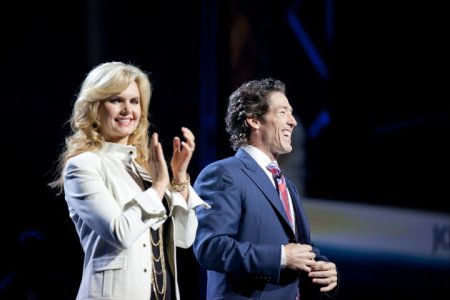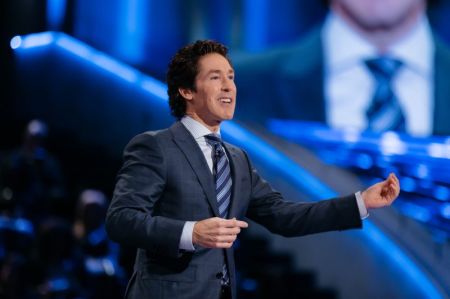Lakewood Church says it never sought forgiveness for $4.4M PPP loan

The Joel Osteen-led Lakewood Church in Houston, Texas, which came under fire last December for accepting $4.4 million from the federal government's coronavirus relief program for small businesses known as the Paycheck Protection Program, said it never sought forgiveness for "the temporary assistance received."
Under the PPP, which ended in May, churches that employ 500 people or fewer could request a federal loan for an amount 2.5 times its average monthly payroll.
The loans, along with a 1% interest, would be forgiven as long as 75% of the funds are used to cover payroll expenses in the eight weeks after the house of worship received the funds. The remaining 25% was allowed to be spent on other operating costs, such as rent, utilities and insurance.
Some 75% of Christian churches and organizations that applied for and received forgivable loans through the program said the loans helped keep their operations fully staffed, according to a survey by Vanderbloeman of over 900 churches and organizations. Many of them received forgiveness for those loans.
In a statement to The Christian Post Monday, Lakewood Church said the "short-term financial assistance" received through the PPP program provided one of America's largest congregations with much-needed support as it navigated the COVID-19 pandemic like other churches. However, Lakewood Church never tried to have the low-interest loan forgiven.
"Lakewood, its employees and their families are grateful for the temporary assistance received from the Paycheck Protection Program (PPP) during such a time of need. Like many organizations temporarily shuttered by the pandemic, this loan provided Lakewood Church short-term financial assistance in 2020 ensuring that its approximately 350 employees and their families would continue to receive a paycheck and full health care benefits," the church's statement reads.
"At no point did Lakewood seek forgiveness of its PPP loan. Since January 2021, Lakewood has made advance payments on its PPP obligation."
The Vanderbloeman survey cited data collected over several months from 900 churches and Christian organizations in 2020 and shows how critical PPP support was for the survival of Christian operations that had access to the funding.
Churches of all denominations received an estimated $6 billion to $10 billion of the $659 billion that funded the PPP over two rounds under the CARES Act, according to an analysis by Ministry Watch.

The U.S. Catholic Church reportedly received at least $1.4 billion in funding and possibly as much as $3.5 billion, according to an analysis by The Associated Press.
While many churches praised PPP loans as a blessing to their operations, some religious leaders and suspected criminals have also been prosecuted for allegedly defrauding the program of several million dollars.
Around the same time, Lakewood Church was being criticized for accepting government money last December, Daystar Television Network returned the $3.9 million it received from the PPP after it was probed by a reporter over the purchase of a private jet.
The Christian network, founded by Marcus Lamb, denied using PPP funds to purchase a multimillion-dollar 1997 Gulfstream V two weeks after it received the PPP loan, Inside Edition reported.
Lakewood Church insisted, however, that they followed the law.
"Lakewood followed all SBA rules and guidelines for the PPP lending program and used the funds it was loaned as temporary funding to cover employee payroll costs and health benefits during the height of the pandemic," the church's statement adds. "None of the PPP loan funds provided any personal financial benefit to Pastors Joel and Victoria Osteen, neither of whom receive salaries from Lakewood Church."
The decision to include churches in the PPP was both controversial and unprecedented. The Houston Chronicle reported that it was the first time the federal government offered direct financial assistance to "untaxed religious and nonprofit institutions."
"Religious freedom is a core promise of our Constitution, and that means that no one should be forced to pay for someone else's religious beliefs or practices," Rob Boston, a senior adviser for the secular legal group Americans United for Separation of Church and State, was quoted as saying.
Boston told the publication he was pleased Lakewood Church has been repaying the PPP funds.
"Historically, the practice in the United States has been for congregations to support houses of worship and not rely on taxpayer money — and to be free from the inevitable entangling forms of oversight that brings," Boston said.





















